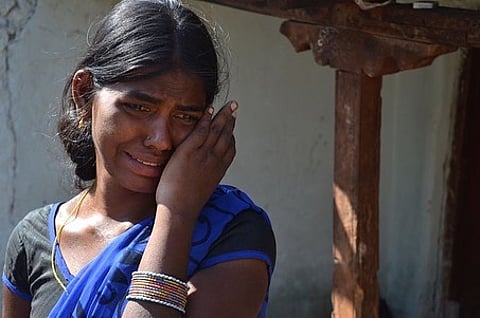Photos courtesy of Rianna Pauline Starheim
Politics
The women who did not die
Thousands of Indian male farmers commit suicide every year. What happens to their families?
The sun is fire. Denanmma Ramulu, 45, sits against the mud-brick wall, hands on her hair, head buried in her lap, back hunched.
"There's no time I have ever felt hope for the future," she says. Her husband of more than 20 years killed himself last year, leaving her with a crippling debt of two lakh rupees (USD 2,000), along with two acres of drought-stricken land. "When I found out my husband died, I broke down completely." The funeral cost 30,000 rupees (USD 450). After the cremation, they scattered the ashes and faced what was left: the debt and the dusty fields.

